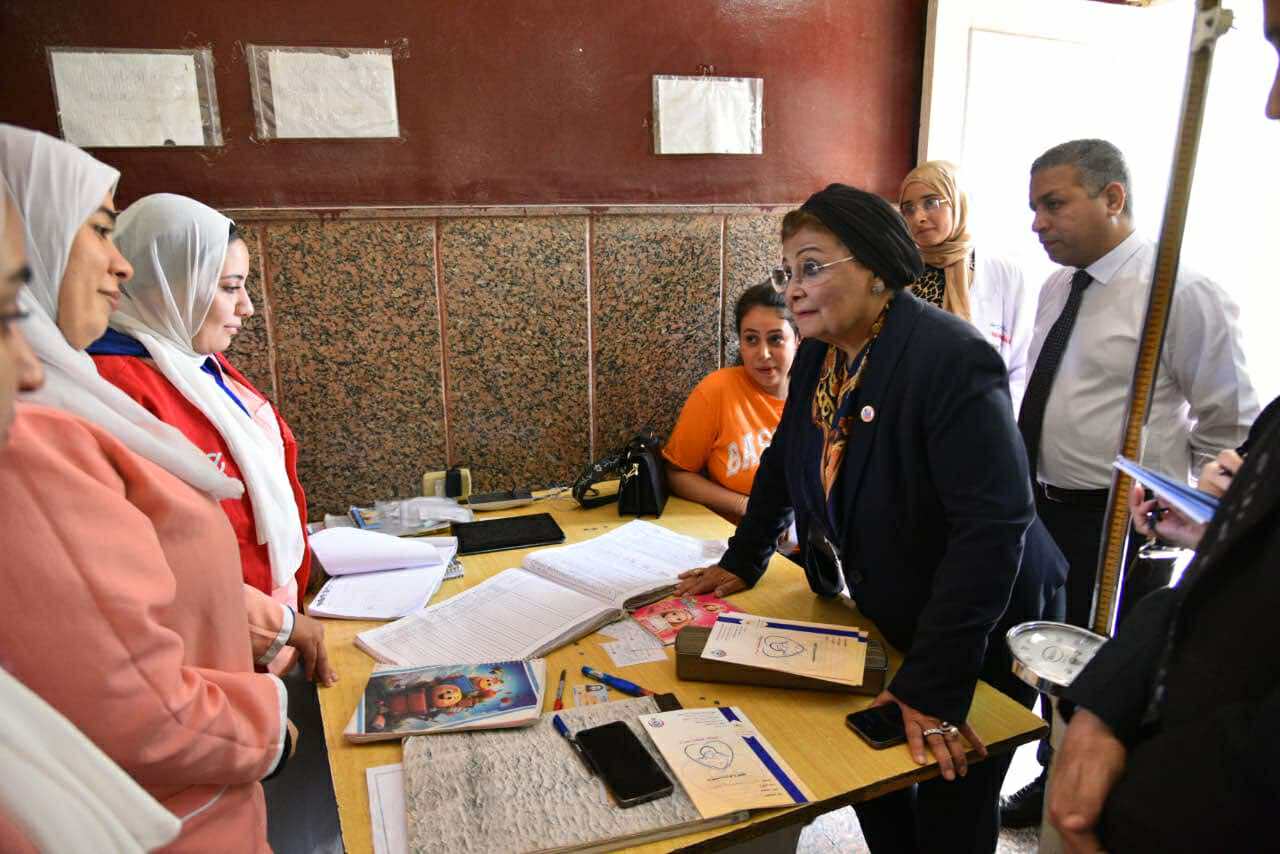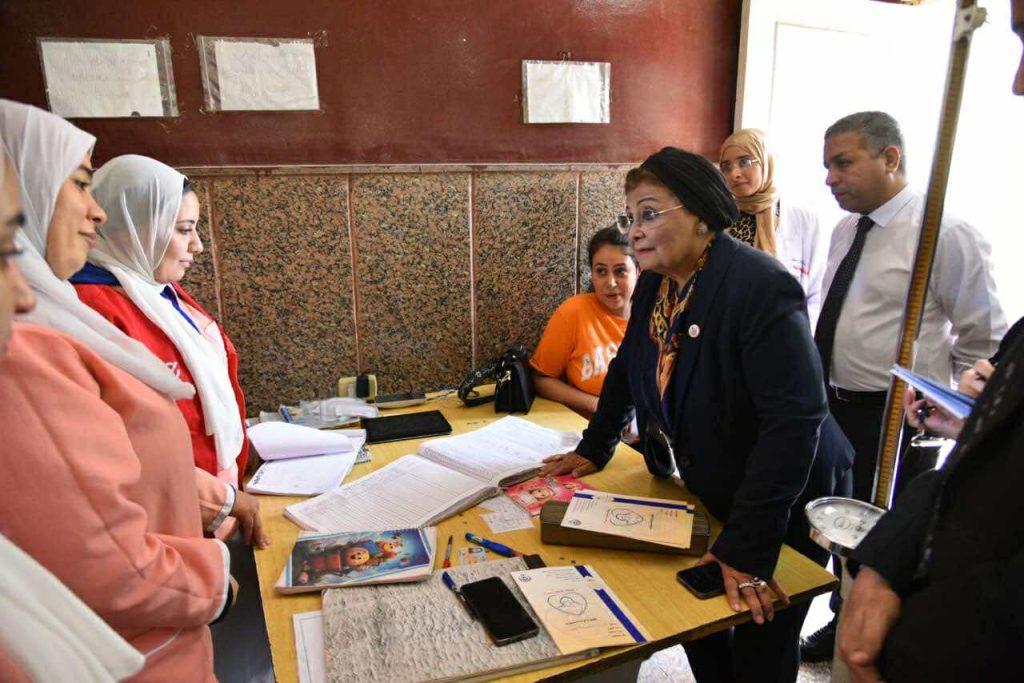Dr. Abla El-Alfi, Deputy Minister of Health and Population, inspected Tahta General Hospital in Sohag Governorate and several health units, following directives from Dr. Khaled Abdel Ghaffar, Deputy Prime Minister and Minister of Health, to monitor the quality of medical services and enhance efforts in population issues and maternal and child health.
The visit included the Sohag East Child Care Unit, where the Deputy Minister reviewed counseling rooms, describing them as the “heart of health in Egypt.” She emphasized the need for continuous follow-up with mothers, protecting children’s health rights, and registering cases both electronically and on paper. She also inspected pregnancy, dental, and pediatric clinics, ensured the availability of devices and supplies, and directed the transfer of surplus oxygen devices to emergency departments and the establishment of a separate ultrasound room with isolated sterilization tools.
The tour covered the Diyabat and Al-Hawawish health units, where Dr. El-Alfi noted challenges such as the non-activation of adolescent and youth clinics and weak use of tablets due to internet issues, directing quick resolution to ensure service continuity.
At Tahta General Hospital, she inspected the neonatal care unit in preparation for dividing it into three levels according to medical standards, followed the implementation of the “Mother and Baby Friendly Nursery” program and infection control procedures, and instructed speeding up the discharge of stable cases. She also reviewed natural delivery, counseling, and breastfeeding rooms, praised the service level, examined several children, and stressed the importance of accurate documentation and rapid emergency response.
Dr. El-Alfi held a meeting with heads of obstetrics and gynecology departments at the hospital, discussing the high rates of cesarean deliveries and neonatal deaths, explaining the ministry’s plans to digitize care services, implement the “Partogram” program electronically, and launch the “Safe Start” initiative to encourage natural birth and reduce cesarean rates to 30% by 2027, alongside strengthening family planning services.
In a related context, the Deputy Minister participated in a community meeting organized by the National Population Council in Akhmim city, attended by Dr. Amr Dowidar, Sohag Health Deputy Director, and executive and religious leaders.
She highlighted the importance of the period from pregnancy to age six in building child health, stressing exclusive breastfeeding, premarital tests, and folic acid intake before pregnancy. She also called for preventing child marriage under 18, reducing unjustified cesarean deliveries, and promoting natural birth, pointing to the role of the “Golden 1000 Days” initiative in protecting child health and the “Her Childhood is Her Right” campaign to combat child marriage and raise awareness of its risks.














Recommended for you
Exhibition City Completes About 80% of Preparations for the Damascus International Fair Launch
Talib Al-Rifai Chronicles Kuwaiti Art Heritage in "Doukhi.. Tasaseem Al-Saba"
Unified Admission Applications Start Tuesday with 640 Students to be Accepted in Medicine
Egypt Post: We Have Over 10 Million Customers in Savings Accounts and Offer Daily, Monthly, and Annual Returns
Al-Jaghbeer: The Industrial Sector Leads Economic Growth
His Highness Sheikh Isa bin Salman bin Hamad Al Khalifa Receives the United States Ambassador to the Kingdom of Bahrain